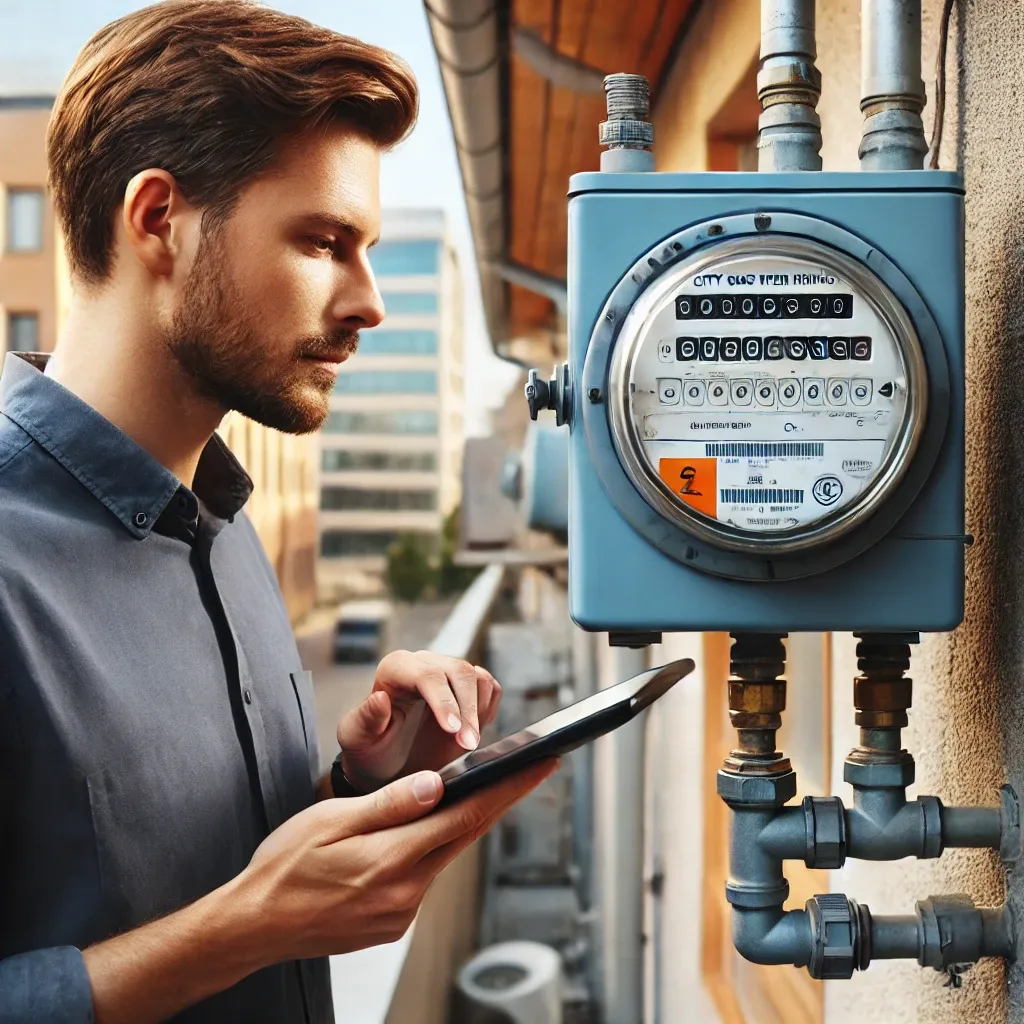Are you moving and need to report or read your city gas meter? How do you avoid errors in meter readings? This guide covers everything you need to know about city gas moving meter readings.
City gas meter readings are a crucial part of managing your utility services, especially when moving into or out of a residence. A precise reading ensures you’re only billed for the gas you’ve actually used. In this article, we’ll cover the steps for reading your city gas meter, the process of reporting it when moving, and how to handle meter reading errors. Understanding how this system works can save you time and money, ensuring a smooth transition during any move.
City Gas Moving Meter Reading: What You Need to Know
When you’re in the process of moving to a new home or apartment, one important task is to report your city gas meter reading to ensure you’re billed correctly for your usage. This step is crucial for both tenants and homeowners, as it ensures that the gas company knows exactly when you moved out or in, and the amount of gas you’ve consumed during that period. Not reporting the right meter reading can lead to billing errors or unexpected charges.
Why Accurate Meter Readings Matter
Accurate gas meter readings help determine your actual gas consumption and ensure that your final bill is correct. If the meter reading isn’t accurately reported, you could either end up paying for someone else’s usage or be charged for gas that wasn’t consumed. Additionally, a missed reading or error can cause delays in your move-out process, making it more difficult to close your utility accounts.
How to Read a City Gas Meter
-
Locate the Meter City gas meters are usually located outside your home or apartment, either on the side of the building or in a designated area for utility meters.
-
Understand the Meter Display Most gas meters show a series of numbers. These numbers represent the amount of gas you’ve used. The readings are often displayed in cubic feet or cubic meters, depending on your location.
-
Record the Reading When you look at your gas meter, note the numbers shown. You’ll only need to report the numbers that are visible, typically excluding any small numbers or digits after the decimal point.
-
Take a Picture For added security, take a clear photo of the meter reading. This can serve as proof if any disputes arise about the meter reading.
-
Submit the Reading Once you’ve recorded the reading, it’s time to submit it. Some utility companies allow you to report the reading online, by phone, or via a mobile app. Be sure to do this promptly to avoid any billing issues.
Learn more about reporting city gas readings
Common Issues with Meter Readings
-
Misread Meters Sometimes, meters can be difficult to read, especially older models or those with faint markings.
-
Errors by Technicians If a technician reads your meter incorrectly, this can lead to higher or lower bills.
-
Moving Without Reporting If you forget to report the reading when you move, you might still be charged for gas consumption after you’ve left the property.
How to Report City Gas Meter Readings When Moving
When you’re moving into or out of a home, it’s essential to report the exact meter reading to avoid paying for gas you haven’t used. The process can differ depending on your gas provider, but here’s an overview of what you can expect.
Steps for Reporting
-
Notify the Gas Company in Advance Most utility companies require that you notify them of your move at least a few days in advance. This allows them to schedule a final meter reading or give you instructions on how to submit the reading yourself.
-
Submit Your Final Reading Follow the instructions provided by your gas company to submit your final meter reading. This could involve filling out an online form, calling customer service, or sending the reading via email.
-
Request a Final Bill After submitting your meter reading, request a final bill for your current home. This ensures that you are only charged for the gas you used up until your move-out date.
-
Confirm the Transfer for New Tenants or Owners If you’re moving out and someone else is moving in, be sure to confirm that they are aware of how to set up their own gas account.
How to apply for gas service transfer
Troubleshooting Meter Reading Issues
-
Wrong Bill After Moving If you notice that your bill is incorrect after you’ve moved, contact the utility company immediately. Provide proof of your meter reading and any other relevant information to resolve the issue quickly.
-
Inaccessible Meters If the gas meter is difficult to access (for example, if it’s locked or blocked), contact the gas company. They may send someone to inspect and take the reading.
City Gas Meter Reading Errors: What to Do
Occasionally, errors in gas meter readings occur, leading to either overbilling or underbilling. It’s important to be proactive in addressing these issues to avoid paying for gas you didn’t use, or being undercharged and faced with a large bill later on.
Types of Meter Reading Errors
-
Transcription Errors A worker or automated system might misread or incorrectly transcribe the meter number.
-
Faulty Equipment In rare cases, the meter itself might malfunction and give incorrect readings.
-
Failure to Report Sometimes, customers forget to report their final meter reading, leading to estimated readings that may be inaccurate.
How to Resolve Meter Reading Errors
-
Contact Customer Service As soon as you notice a discrepancy in your bill, contact the gas provider. They will typically be able to investigate the issue, review the meter reading history, and correct any errors.
-
Submit Proof of Correct Reading If you have a photo or written record of the correct meter reading, this can be extremely helpful in resolving any issues.
-
Request a Re-reading If there’s still doubt about the accuracy of your meter reading, ask for a re-reading. Some companies will send a technician to double-check the readings.
Report city gas meter reading errors
Conclusion
Accurately reading and reporting your city gas meter is essential when moving in or out of a home. By following the steps outlined above, you can avoid errors and ensure that you’re only billed for the gas you’ve actually used. Always keep track of your readings, report them promptly, and address any discrepancies as soon as possible. By taking a few extra steps, you’ll make the process of moving much smoother and more efficient.
As the famous saying goes, “An ounce of prevention is worth a pound of cure.” Taking the time to report your meter reading correctly will save you from future headaches and surprise bills.






